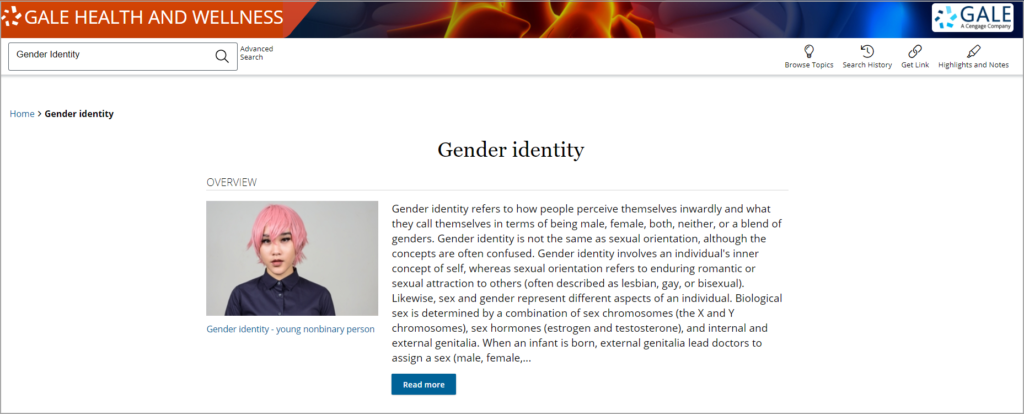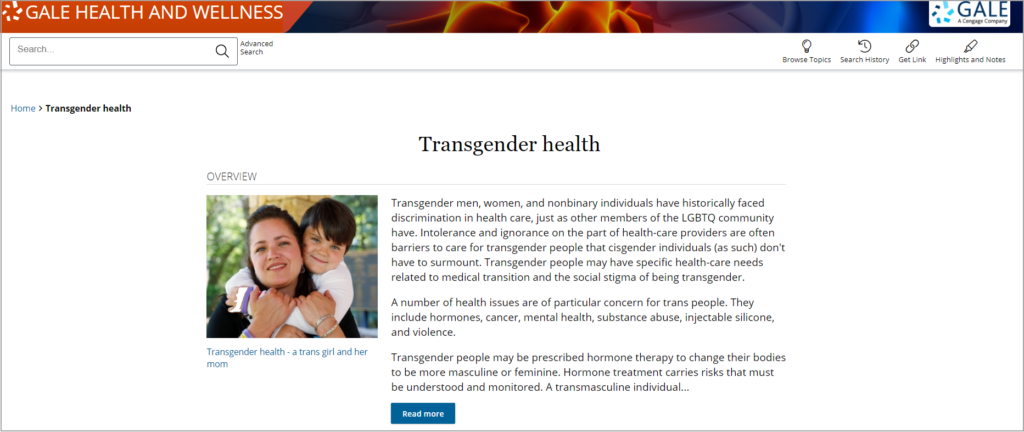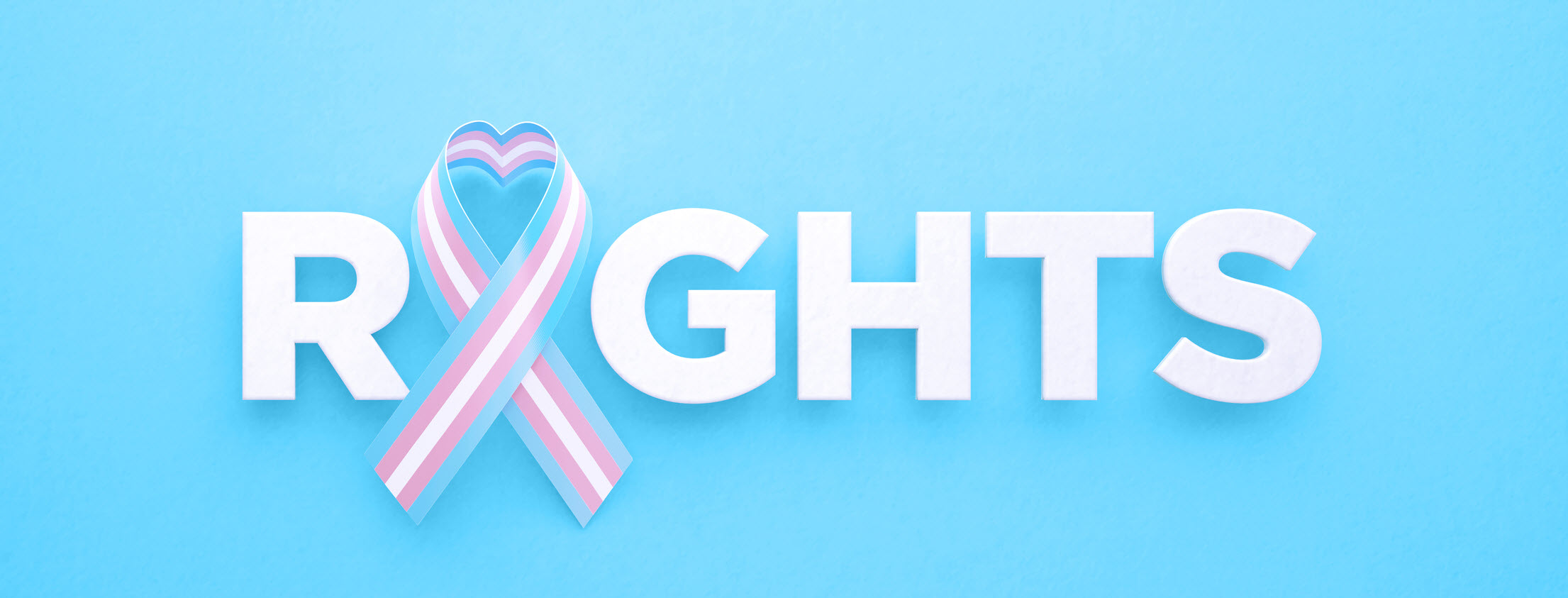| By Sam Long (he/him) – a transgender man and a high school teacher specializing in gender-inclusive biology education |
In the last weeks of the school year, I invited my class to share their exciting summer plans. Many of my high school students were looking forward to spending time with their families, playing their favorite sports, or receiving a COVID vaccine that was recently approved for their age group. Indeed, these activities represent three important aspects of our wellness: a supportive family, physical activity, and health care. But for my transgender students, access to these things is constantly in jeopardy.
Transgender describes individuals whose gender identity, or sense of their own gender, does not align with their sex assigned at birth. In the United States, 1.4 million adults and 0.7% of youth now identify as transgender. This means there is a transgender person in every crowd and every classroom.
The Gale Health and Wellness database features a topic page on Gender Identity that provides more comprehensive information about this topic, which is continually changing and growing in public awareness.

With greater public awareness also comes increased backlash and efforts to exclude transgender people from public life. In the 2021 legislative session, 33 U.S. states have introduced more than 100 bills that target transgender people. Twenty-five bills have sought to ban trans-student-athletes from participating in sporting events aligned with their gender identity, and three states have now signed these bills into law. Bill sponsors attempt to justify the exclusion of trans athletes in the name of fairness to female athletes, but real-life cases of trans athletes dominating the competition are few and far between. For trans-student-athletes, exclusion from sports means losing the many positive effects of athletic participation, including better health, socio-emotional wellness, and a sense of belonging.
Lawmakers have simultaneously targeted transgender youth who are seeking access to health care. This year, twenty states introduced bills that would make it a crime for health care professionals to provide gender-affirming treatment to minors, even those with supportive guardians. Only Arkansas has passed a trans health-care ban into law. Although bill proponents have framed gender-affirming health care as “experimental,” these treatments follow internationally recognized standards of care, and they are life-saving for many trans youth.
Trans health-care bans are only the latest in a long line of barriers to health for trans people. The Gale Health and Wellness database features a topic page on Transgender Health that details many disparities faced by the trans community in accessing affordable and trans-competent health care.

As we celebrate Pride Month, I hope that we can also recognize and begin to address longstanding inequities that threaten the health and wellness of the LGBTQ+ community. Next year, I hope to see more bills focused on improving social inclusion and the quality of health care for transgender people, especially the young trans people who walk into my classroom every year.
75% – تسوق أونلاين في السعودية مع خصم 25 , أحذية ازياء رياضية الجري للرجال , adidas copa mundials in color today schedule 2016 , نمشي | nike air max motion green screen black bars Mid Red Patent DC7294 – nike lebron xi nsw life red cork town ireland – SBD – 600 Release Date
